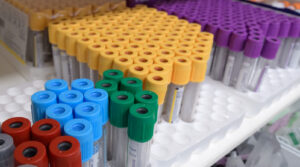Biobank
At the Center for Early Diagnostics, we ask our clients if they would like to participate in scientific research. We request written consent to store urine, blood, and data in a biobank. Participation is entirely voluntary. These materials and data will make a significant contribution to improvements to early cancer detection.
